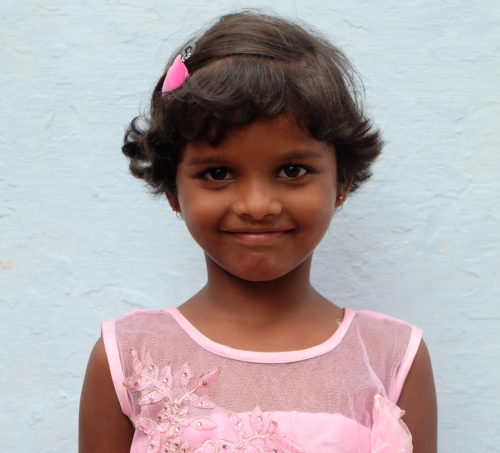As a child assistance organization, Children Incorporated understands well the correlation between children’s health and their ability to receive an education. We often hear from our volunteer coordinators at our affiliated projects in the United States and abroad that children living in poverty are at risk of falling behind in school. Our coordinators often note that children haven’t eaten over the weekend, so they are too hungry to concentrate in class; or sometimes that kids are sleep deprived because they don’t have a bed at home, and must sleep on the floor. Sometimes children suffer from poor hygiene, and they are too embarrassed to go to school at all. Without support, children from low-income households potentially miss out on the opportunity to receive an education, and to break the cycle of poverty from which they come.
By providing children with basic needs such as adequate clothes, shoes, hygiene items, and food, Children Incorporated supports their overall welfare.
Poverty is described as an economic state that does not allow for the provision of basic needs such as adequate food, clothing, and housing. In America today, children are the poorest segment of our society. 22 percent of children in the United States live below the federal poverty level, which is the highest rate of child poverty among developed countries in the world. Over the past 35 years, child poverty has increased in the United States due to various factors. Since the 1960s, the costs of housing and transportation have increased exponentially. Uneducated workers are earning less, the benefits that welfare programs offer have decreased in value, and the number of single-parent, female-headed households has increased.
Poverty affects more than just health
When parents aren’t able to provide adequately for their children, kids are subjected to health issues such as malnutrition and insufficient healthcare, which can lead to increases in school absences, tardiness, incidents of illness during class, and untreated health problems. Children from impoverished families are also more likely to be admitted to the hospital, which further increases the number of days on which they are absent from school. Poor families suffer from increased infant mortality rates, and poor children suffer from frequent and severe chronic diseases, like asthma, and lower immunizations rates.
Poverty affects not only children’s health, but their growth and development as well. Beyond physical well-being, living in an impoverished environment can create stressful situations for children, sometimes related to perpetual abuse or neglect. Poor households are often crowded, noisy, and in deteriorating structures where children may often witness violence and crime.

Children’s health and their education are intrinsically linked.
Kids may also be isolated from their peers, who could otherwise provide them with a support system. If parents aren’t able to supply children with the time and attention they need to feel safe and secure, children living in poverty in turn often suffer from trauma, which further affects their ability to learn. Children who are suffering from trauma related to poverty can often be withdrawn and unwilling to participate in class, or they may have behavioral issues. Trauma can also lead to depression, sleeping disorders, eating disorders, and attention deficit disorders — all of which can distract a child from receiving an education.
By providing children with basic needs such as adequate clothes, shoes, hygiene items, and food, Children Incorporated supports their overall welfare. These essentials, which we help to provide to children in need on a monthly basis, are vital to a child’s growth and success in school. Beyond ensuring that children are adequately provided for, our sponsorship program, in which we partner individual sponsors with a particular child, also provides an emotional support system that is a crucial factor in child development. If a child living in poverty is both mentally and physically healthy, they will have more opportunities in life.
***
HOW DO I SPONSOR A CHILD with Children Incorporated?
You can sponsor a child with Children Incorporated in one of three ways: call our office at 1-800-538-5381 and speak with one of our staff members; email us at sponsorship@children-inc.org; or go online to our donation portal, create an account, and search for a child that is available for sponsorship.
References:
Jensen, Eric. Teaching with Poverty in Mind. ASCD. Alexandria, Virginia. 2009.
“Teaching Children from Poverty and Trauma”. National Education Association. Washington, D.C. June 2016.
Wood, David. “Effect of Child and Family Poverty on Child Health in the United States.” Pediatrics. September 2003, VOLUME 112/Issue Supplement 3.

